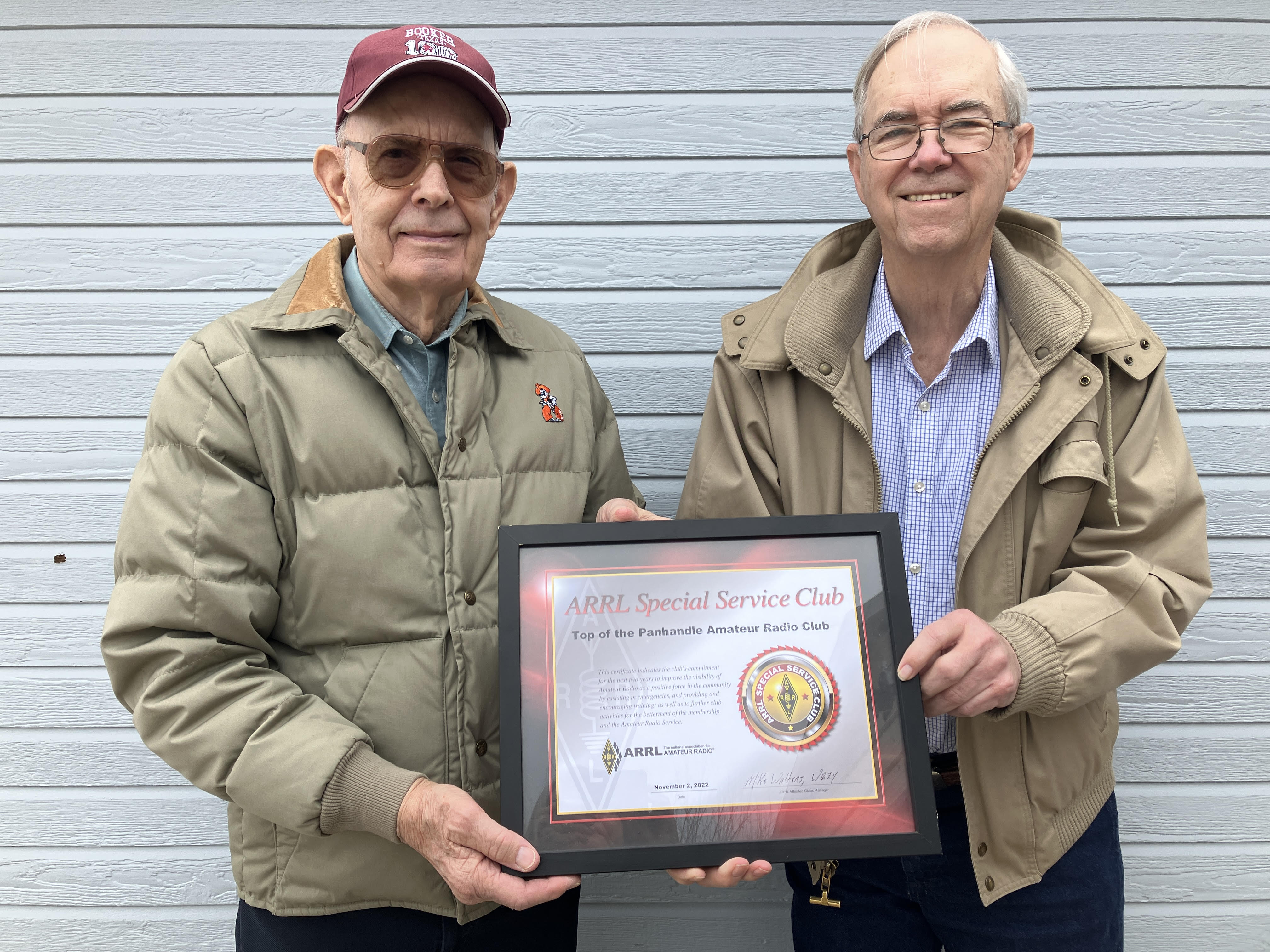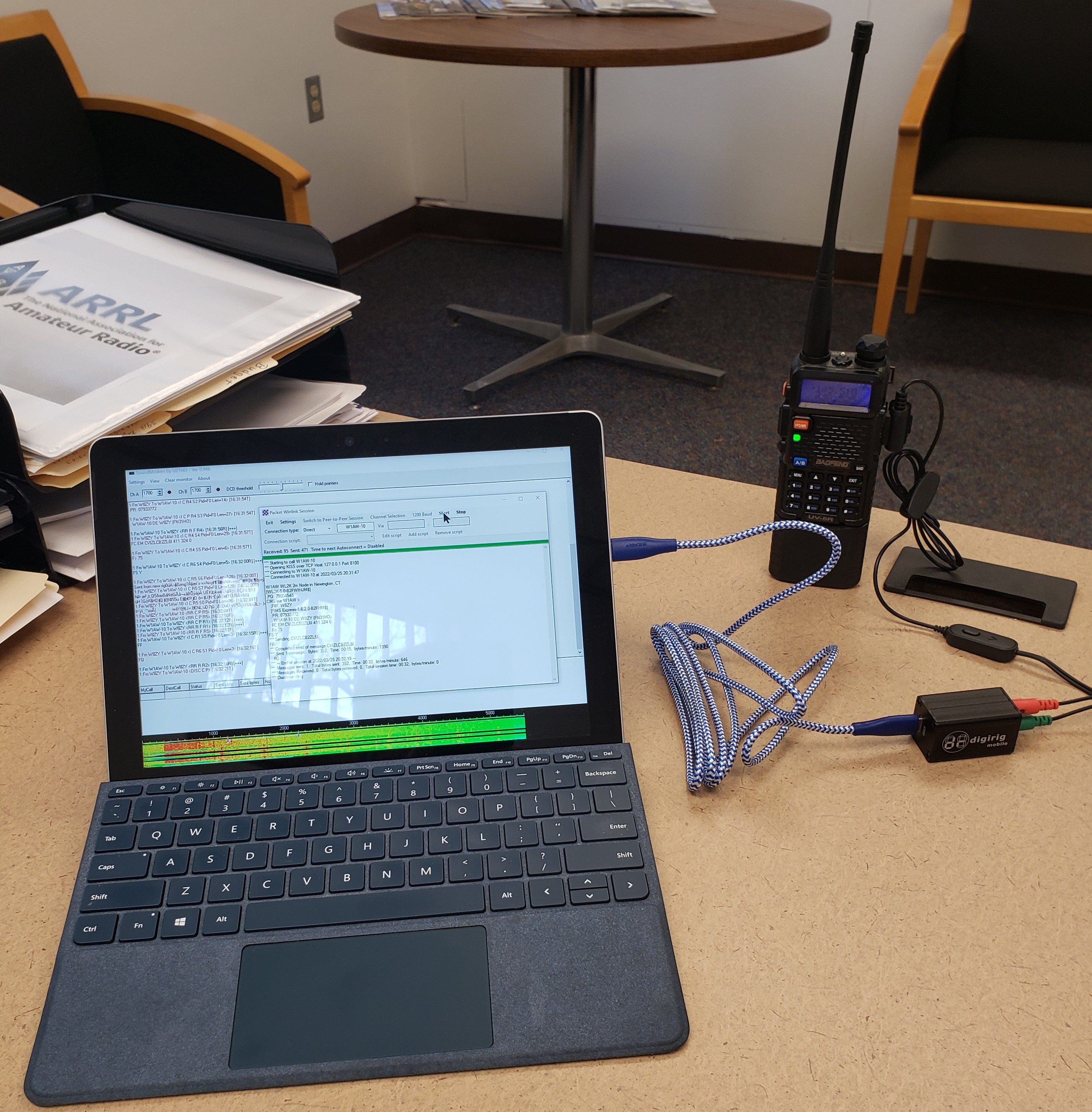 February 21, 2023 Editor: Michael Walters, W8ZY | |||||
Minnesota QSO Party The Winona Amateur Radio Club had "a blast" participating in the 2023 Minnesota QSO Party (MNQP) on February 4, according to participant and host Paul Degallier, ADØUU. Sam Resto Donate, KFØACN, was instrumental in putting stations together prior to operating in the event. He shared that in just a few hours he made half as many contacts as he's made since he became a licensed ham. Winona Amateur Radio Club members that participated in the contest operated from Degallier's
garage. They had two radios to choose from, a Kenwood or an Icom, and plenty of snacks and beverages to fuel their efforts. There were some hitches, such as snow and antennas that struggled from the weather. After some frustration with setting up a broken antenna prior to the event, John Kowalik, K2OPT, was able to manufacture a new one. The idea of MNQP -- besides having fun -- is to contact as many of Minnesota's 87 counties as possible, plus give out-of-state stations a chance to score Winona County. Combining phone and CW, Winona Amateur Radio Club members made contacts in 50 counties and earned 89,960 points. Participants included: Lance Tagliapietra, ADØUT; Paul Degallier, ADØUU; Justin McElmury, KFØBSI; Sam Resto Donate, KFØACN; John Kowalik, K2OPT; Bob Seaquist, W9LSE; Marv Rodvold, AC9TO; Peter Ebertowski, KDØYOB; Russ Marsolek, NØQK, and Dan Goltz, WKØW. Call for Proposals February 15, 2023 --- The Amateur Radio on the International Space Station (ARISS) program is seeking formal and informal education institutions and organizations, individually or working together, to host an Amateur Radio contact with a crew member on board the ISS. ARISS anticipates that the contact would be held between January 1, 2024 and June 30, 2024. Crew scheduling and ISS orbits will determine exact contact dates. To maximize these radio contact opportunities, ARISS is looking for organizations that will draw large numbers of participants and integrate the radio contact into a well-developed education plan. The deadline to submit a proposal is March 31st, 2023. Proposal information and more details such as expectations, proposal guidelines and the proposal form can be found at https://www.ariss.org/apply-to-host-an-ariss-contact.html. An ARISS Introductory Webinar will be held March 1st, 2023 at 8 PM Eastern Time. The Eventbrite link to sign up for the free webinar is: https://www.eventbrite.com/e/ariss-proposal-webinar-for-spring-2023-proposal-window-registration-515706320487 The Opportunity Crew members aboard the International Space Station will participate in scheduled Amateur Radio contacts. These radio contacts are approximately 10 minutes in length and allow students to interact with the astronauts through a question-and-answer session. An ARISS contact is a voice-only communication opportunity via Amateur Radio between astronauts aboard the space station and classrooms. ARISS contacts afford education audiences the opportunity to learn firsthand from astronauts what it is like to live and work in space and to learn about space research conducted on the ISS. Students also will have an opportunity to learn about satellite communication, wireless technology, and radio science. Because of the nature of human spaceflight and the complexity of scheduling activities aboard the ISS, organizations must demonstrate flexibility to accommodate changes in dates and times of the radio contact. Amateur Radio organizations around the world with the support of NASA and space agencies in Russia, Canada, Japan and Europe present educational organizations with this opportunity. The ham radio organizations' volunteer efforts provide the equipment and operational support to enable communication between crew on the ISS and students using Amateur Radio. Please direct any questions to ariss.us.education@gmail.com. About ARISS Amateur Radio on the International Space Station (ARISS) is a cooperative venture of international amateur radio societies and the space agencies that support the International Space Station (ISS). In the United States, sponsors are the American Radio Relay League (ARRL), Radio Amateur Satellite Corporation (AMSAT), Amateur Radio Digital Communications (ARDC), NASA's Space Communications and Navigation program (SCaN), and the ISS National Lab-Space Station Explorers. The primary goal of ARISS is to promote exploration of science, technology, engineering, the arts, and mathematics topics. ARISS does this by organizing scheduled contacts via amateur radio between crew members aboard the ISS and students. Before and during these radio contacts, students, educators, parents, and communities take part in hands-on learning activities tied to space, space technologies, and amateur radio. For more information, see http://www.ariss.org Media Contact: Dave Jordan, AA4KN Special Event Station W9RH/106 On Saturday, January 21, 2023, the Milwaukee Radio Amateurs' Club (MRAC), W9RH, celebrated 106 years of continuous service to the Milwaukee area amateur radio community with a special event station operation
from the Ham Radio Outlet showroom. Over 100 contacts were made on 20-meter SSB, using the MRAC repeater in FM and C4FM mode, and via WIRES-X. While a few members observed the operation, on-air operators included Carter Davis, W9ERR; Joe Schwarz, N9UX; Gary Beier, KD9VGL; Ted Carlson, N9KQQ; Jeff Weber, AD9AB; Jerry Riedel, K9FI, and Dick Strassburger, N9EEE. From Hamateur Chatter of the Milwaukee Radio Amateurs' Club VOTA Update The yearlong ARRL operating event, Volunteers On the Air (VOTA), celebrating all ARRL volunteers continues. Many operators around the country Anyone that is an ARRL member, all the way up to the ARRL President and CEO, as well as any field appointee, have points to give. Visit the website at vota.arrl.org, where you can find details about the ongoing event. Check out the list of activations, the leaderboard, and find out how many points all of the different volunteer positions are worth. All points are awarded through Logbook of The World, so there is no special exchange or reference to make. Simply contact them and log the contacts. Get to the site and read up on the details. Most importantly, have fun on the air. Top of the Panhandle 50th Anniversary Fifty years of service, communication, and friendship recently brought 20 members and guests of the Panhandle Amateur Radio Club (PARC) together. Friends and supporters also joined by Zoom, including Radio Amateur Civil Emergency Service State Radio Officer Roy Walker, WA5YZD; ARRL West Texas Section Director Dale Durham, W5WI; a supporter from Fort Stockton, and PARC member Larry Spence, NZ5X. Jerome Doerrie, K5IS,
and Hugh Barton, WA5TVN, were honored for founding the organization more than 50 years ago, and PARC President Jim Lear, N5LNR, presented the club with a certificate from ARRL for their renewal as a Special Service Club. Over the years, PARC has provided communications for bicycle races, offered classes for amateur radio licensees, held frequent testing sessions, offered help with equipment and advice for new hams, held antenna building sessions and antenna parties to put up antennas, helped Scouts with their Radio Merit Badge, and is currently converting a donated ambulance into a communications center for use in emergencies. A number of members are training for the Citizen Emergency Response Team. The club was recently awarded a $7,500 grant from the ARRL Foundation to collaborate with Scouts to help them obtain their licenses. The grant will provide study guides, radios, electronic kits, antenna supplies, and travel funds for those who are part of the Jamboree on the Air program. Mentors from the club will collaborate with the Scouts to help them study for their license exams, and offer help with electronics building, antenna construction, and communication skills. The 15 Scouts in the first cohort are currently being selected from Scout troops in the area. Winlink Survey Follow-Up Last month, I mentioned Winlink as a tool for many of the emcomm deployments across the country. I asked you to send me a Winlink message and tell me where you sent the message from and how you connected. This was a very informal survey and, as I expected, I received several messages. Here are the results: Messages originated in 36 different states. The breakout of connections looked like this:
HF 40% VHF 38% Telnet 15% Not Listed 7% Some of the messages included forms like the ICS-213. I even received several messages that were copied to my personal email. I suspect that many simply looked me up on QRZ and included that message. This shows, in a very informal way, that many can use Winlink to send and receive messages in adverse conditions. Keep up the good work, and maybe we'll have another request like this in the future. Big Bend Amateur Radio Club Supports 2023 Ultra Race Members of the Big Bend Amateur Radio Club (BBARC) provided communications for the 2023 Big Bend Ultra, held at the Big Bend Ranch State Park on January 15, 2023. The annual event hosted 340 runners participating in 10k, 20k, 30k, 50k, and 80k (50-mile) events on trails throughout the park. All races were run concurrently, with staggered start times. We used our permanent 2-meter repeater system, an additional repeater placed near the park entrance, tactical 2-meter simplex frequencies, and the club RV for net control. Joined by radio operators from San Antonio and Austin, a total of 13 hams manned a base camp and five checkpoint stations. State park restrictions on vehicles forced some ham operators to hike with their radio and antenna gear to their checkpoint locations, and several had to camp at their station overnight. One location was 20 miles into the park. Each racers' bib number was recorded at each checkpoint and relayed to net control to track their positions on the various courses. Ham operators also provided intel on checkpoint conditions and supply needs. Net control liaised with park officers and race control officials to maintain up-to-the-minute race statuses for all communications support. Race officials provided medical teams that roved the park on cross-country bikes to assist runners through the desert environment. The state park officers provided two UTV's for medical evacuations, just in case they were needed. Participants included Scott Ahnberg, KI5BLZ; Lee Besing, N5NTG; Lonny Hillin, K5LON; Skip Horni, W5UTW; Charles Land, KC5NKK; Daniel Maldonado, KE5UUQ; Scott McClanahan, KI5ANQ; David Rivenberg, AD5OO; Keith Rizzo, KF5RIC; Charlie Troxel, N5CET; Carroll Voss, KF5KQA, and Bob Ward, WA5ROE. Yellow Rose Drones captured aerial views of the event, which can be seen on YouTube. https://www.youtube.com/playlist?list=PLcf8gu6jzKU6GwupVKLLfrqXjVZgz2UaJ -- Thanks to Charlie Troxel, N5CET, Big Bend Amateur Radio Club President Tips for Maintaining Your Generator Many of us have portable emergency generators that we bought for use during electric outages. After we use them, we store them away until we need them again. Many of us just put them away in the back of the garage or into a storage shed without giving it any thought. Here are some tips on how to store them properly: ⢠If there is still gas in the tank, either drain the gas or add some fuel stabilizer, such as STA-BIL. This will keep the gasoline from deteriorating and usually will make it last for 18 to 24 months. ⢠Run the generator with the fuel stabilizer, then shut off the fuel supply valve until the generator stops. This will make sure that no gas remains in the carburetor or fuel line. Change the oil using the manufacturer's recommended oil viscosity. The recommendation is usually SAE HD30 for warmer months, or 10W-30 for colder months. ⢠Clean the generator with a clean cloth, and cover it with a plastic cover or a tarp. ⢠If you store any gasoline in an approved storage gas can, make sure you add STA-BIL to it. Better yet, pour the leftover gas into your automobile gas tank. Buy some extra oil and a small funnel so that you can add oil next time you run the generator. It is sometimes hard to get the correct oil in the middle of an emergency, and small engines will burn oil on extended run, causing the low oil shutdown to engage. ⢠Buy an extra spark plug for the generator. ⢠Store your electrical extension cords and adapters with the generator so they will be right there when you need them. ⢠If the generator gave you any problems during the last run, take it to an authorized repair facility to have it looked at. The next emergency is not the time to be playing junior repairman with the generator. ⢠Keep a tag on the generator noting when it was last used and serviced, along with the age of the stabilized gasoline in the tank. Better yet, keep the gas tank empty. ⢠Read the generator manufacturer's instruction manual and keep a copy handy for reference! -- Thanks to the Great South Bay Amateur Radio Club's newsletter, The Compass Submitting Info for this Newsletter ARRL Club News is for radio clubs to show how they are working in the community and the hobby to advance amateur radio. If your club completes a project, supports an event, does an EmComm activation, or activates a park, we want to hear about it. You can submit your newsletter article to us at clubs@arrl.org. We like to get them as text or Word files instead of PDFs. If you have pictures, please submit them with caption information, as well as the name and call sign of the photographer. We want to highlight the good work being done by the clubs and show others in the community. Think of this as a chance to show off your club and your programs. How to Plan and Apply for an ARRL Hamfest or Convention If your amateur radio club is planning to host a convention, hamfest, tailgate, or swapfest, please consider applying for it to be an ARRL-sanctioned event. To learn what it means to be an ARRL-sanctioned event, and to get some ideas on how to prepare for and conduct a hamfest or convention, visit www.arrl.org/arrl-sanctioned-events. To have your event sanctioned, complete the online application at www.arrl.org/hamfest-convention-application. The ARRL Hamfests and Conventions Calendar can be found online at www.arrl.org/hamfests. In addition, the Convention and Hamfest Calendar that runs in QST each month also presents information about upcoming events. Important Links ARRL Home: www.arrl.org Find an ARRL Affiliated Club: www.arrl.org/clubs Find your ARRL Section: www.arrl.org/sections Find a license class in your area: www.arrl.org/class Find a license exam in your area: www.arrl.org/exam Find a hamfest or convention: www.arrl.org/hamfests Email ARRL Clubs: clubs@arrl.org | |||||
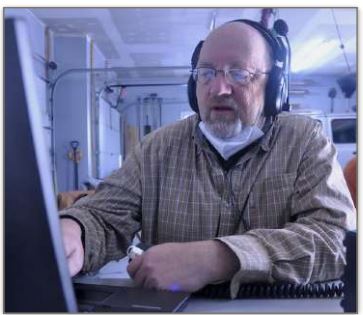
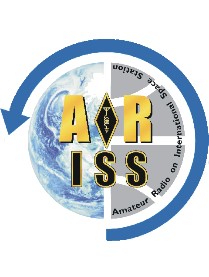
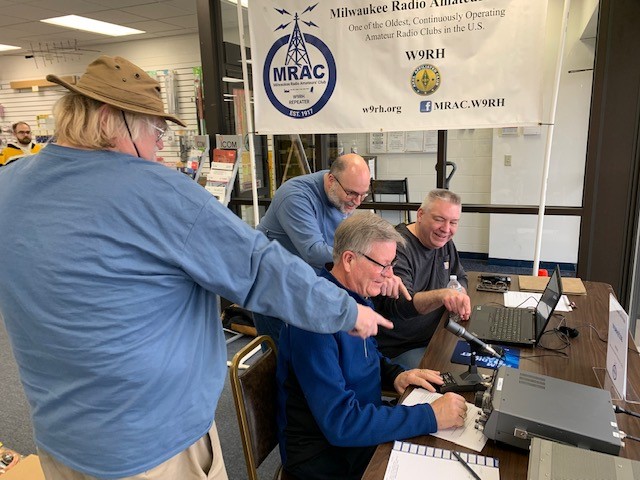
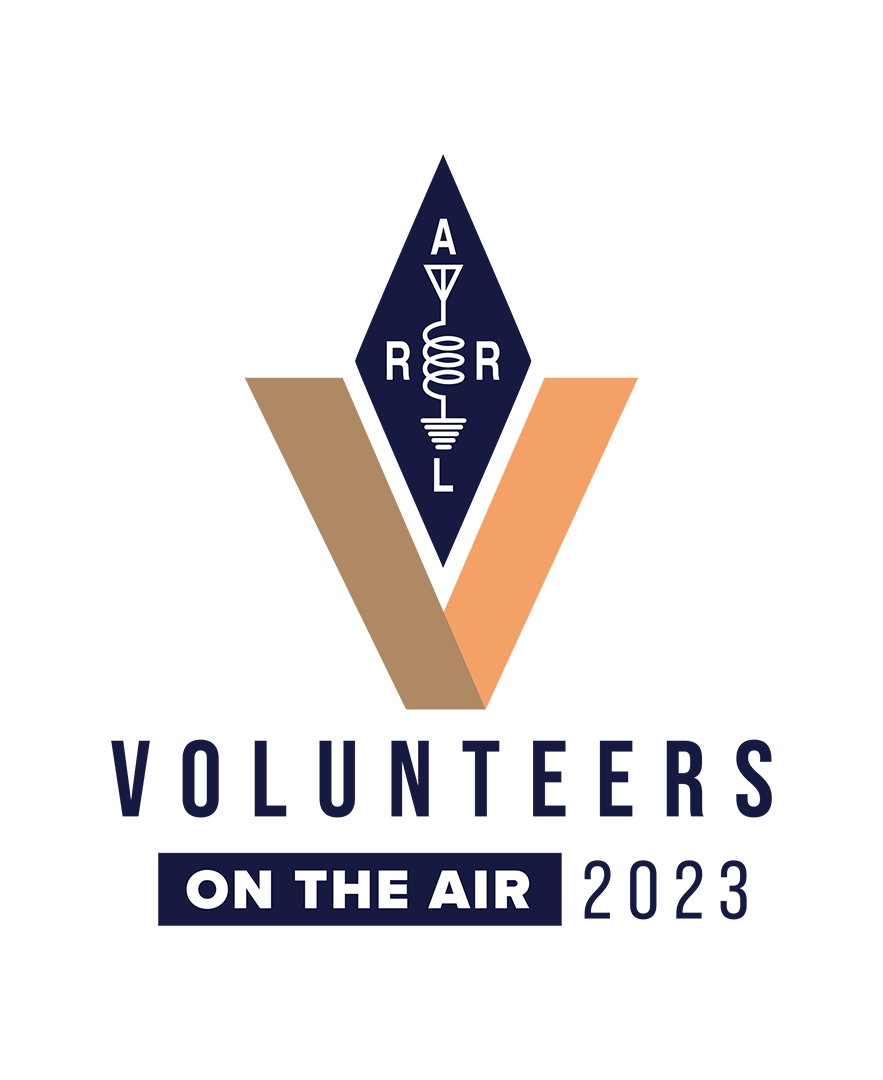 are having fun making contacts with designated point givers.
are having fun making contacts with designated point givers.